Each month we bring you the latest in research news and information on obsessive compulsive disorder (OCD). This month’s edition also features a special quarterly research highlight on pediatric OCD.
Spotlight is also available via email so you can receive the latest research news and information directly in your inbox. Sign up to receive our April update, as well as all future issues, by going here and selecting the “Spotlight” option on our email signup form.
Making Headlines
OCD advocates and stories making news around the globe this spring
 Beyond the Catchphrase
Beyond the Catchphrase
Washington Post, March 21, 2016
Several investigators and their work researching OCD and related disorders are profiled in this article, including projects working to uncover what goes wrong in the brain circuits of people with OCD, studies examining the role of an amino acid called glutamate, and research being done on an antibiotic commonly used to treat acne.
 Where the Mentally Ill Share Their Secret Hopes and Fears
Where the Mentally Ill Share Their Secret Hopes and Fears
Daily Beast, March 3, 2016
A new online art project called “The Secret Illness” shares portraits and personal stories submitted by individuals with OCD. As the project’s co-founder explains, all of the stories are shared in order to put real faces and experiences on a disorder that can sometimes be trivialized or misunderstood.
Why We Need to Stop Casually Throwing Around Words Like ‘Bipolar’  or ‘OCD’
or ‘OCD’
Vice, February 15, 2016
Relying on linguistic research, the author of this article examines why the casual use of phrases like, “I’m sooo OCD” to explain something like simple neat or orderly behavior persists into 2016. The author asks, “Naturally, anyone should be able to describe his or her own feelings and moods on his or her own terms. But at what cost and to whom?”
SCB Showcase
Members of the IOCDF Scientific & Clinical Advisory Board (SCB) are among the best clinicians and investigators in the United States who treat and/or conduct research in the field of OCD and related disorders. Here, we recognize SCB members whose work has recently turned heads in the scientific community or general public.
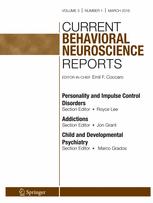 Personalizing the Treatment of Pediatric Obsessive-Compulsive Disorder: Evidence for Predictors and Moderators of Treatment Outcomes
Personalizing the Treatment of Pediatric Obsessive-Compulsive Disorder: Evidence for Predictors and Moderators of Treatment Outcomes
Current Behavioral Neuroscience Reports, February 1, 2016
SCB member Eric Storch, PhD, is a co-author of this report that reviews past research on potential variables that could impact the effectiveness of using CBT, medication, or a combination of the two in treating OCD in children. Some of the predictors reviewed included demographics, disorder-specific characteristics, general illness characteristics, neuropsychological functioning, biomarkers, family factors, and non-specific therapy factors. The report concludes that even though methodological differences across studies make it challenging to synthesize findings and more research with large samples is needed, family factors have emerged as relatively consistent and strong predictors of treatment outcomes and there is preliminary support for attention to the presence of tics in treatment selection.
OCD Research Corner
A monthly roundup of the latest in OCD research from scientific journals and other publications
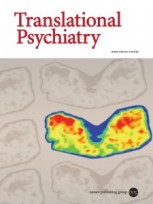 Obsessive–compulsive symptoms in a large population-based twin-family sample are predicted by clinically based polygenic scores and by genome-wide SNPs
Obsessive–compulsive symptoms in a large population-based twin-family sample are predicted by clinically based polygenic scores and by genome-wide SNPs
Translational Psychiatry, February 9, 2016
Preliminary research into whether OCD symptoms can be genetically inherited is now starting to deliver some early findings, including this study that uses genetic data originally collected by the IOCDF’s Genetics Collaborative. Research conducted as part of this study contributes to insights on the genetic basis of OCD symptom presentation by studying a sample population of twins and siblings in the Netherlands and performing a series of genetic analyses. The study confirmed several previous findings on the genetic risk of inheriting OCD and provided suggestions for future direction genetic studies can take that would rely on different populations and closer study of specific genes or chromosomal regions.
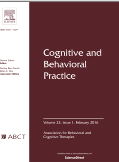 Individualized Intensive Treatment for Obsessive-Compulsive Disorder: A Team Approach ($)
Individualized Intensive Treatment for Obsessive-Compulsive Disorder: A Team Approach ($)
Cognitive and Behavioral Practice, February 2016
While ERP is well-established as an effective treatment for OCD, authors of this study argue its availability is often limited by a shortage of trained mental health providers. The authors use a case study illustrated in their paper to give mental health providers information and guidance on implementing a short-term intensive individualized ERP program for OCD within an outpatient psychiatry clinic that does not routinely offer these services. Special considerations and potential challenges that should be considered when offering this type of intensive treatment are also discussed.
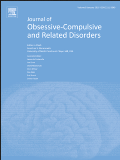 Metacognitive therapy for obsessive-compulsive disorder: A pilot study ($)
Metacognitive therapy for obsessive-compulsive disorder: A pilot study ($)
Journal of Obsessive-Compulsive and Related Disorders, February 23, 2016
Seeking to increase the number of people who achieve recovery or are asymptomatic following treatment, this study explores the use of metacognitive therapy to treat OCD. This type of therapy targets metacognition, a key cognitive process involved in the development and maintenance of OCD. Study authors found high proportions of clinically significant change and that the majority of patients included in the study population no longer fulfilled the diagnostic criteria for OCD.
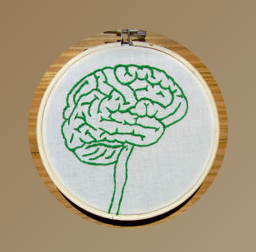 Podcast: Heather Berlin And Obsessive Compulsive Disorder
Podcast: Heather Berlin And Obsessive Compulsive Disorder
Explain the Brain, February 26, 2016
Heather Berlin, a cognitive neuroscience at Mount Sinai School of Medicine, discusses her research on OCD and olfaction, or sense of smell. This short interview clip discusses Berlin’s study, which revealed differences in brain activity of individuals with OCD in the part of the brain that processes disgust in response to smelling different scents tested as part of the study. Berlin says her work has led her to further test possible new therapeutic treatment options for those with contamination OCD.
IOCDF Research Resources
Find other research-related resources from the IOCDF, including:
- Join a research study as a participant
- Learn about the IOCDF Research Grant Program
- Donate to the IOCDF Research Grant Fund
For researchers:


Leave a Reply